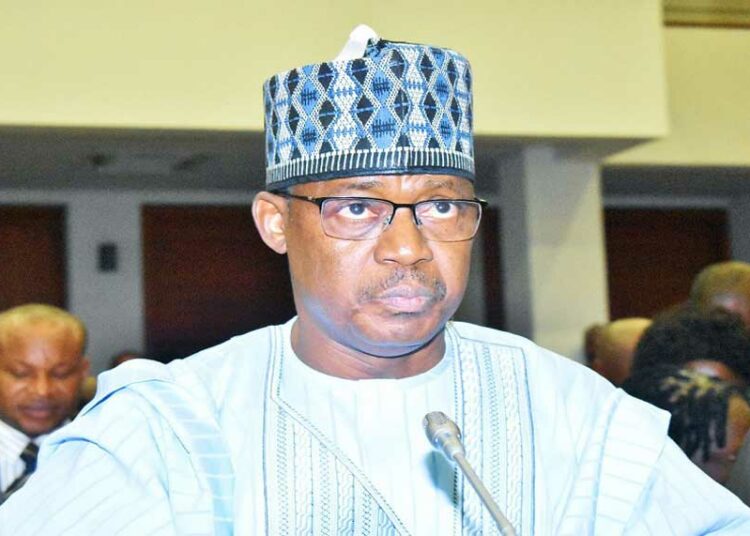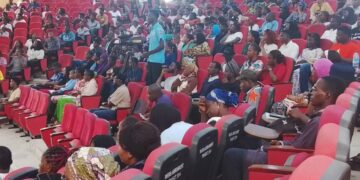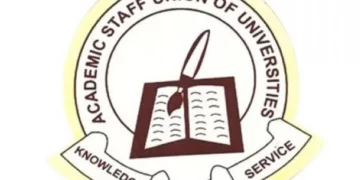Stakeholders in the university education sub-sector have brainstorm on sustainable and systemic solutions that would foster a safe learning environment in Nigerian tertiary institution.
The stakeholders which comprise of the Federal Ministry of Education (FME), National Universities Commission (NUC) and the University-based Unions, especially the Academic Staff Union of Universities (ASUU) recently gathered at a one-day residential consultation in Abuja.
The consultation was organised by the leadership of Alliances for Africa (AFA), a non-governmental organisation, in partnership with the Centre for Gender Studies in Nigeria.
Speaking, the acting Executive Secretary, NUC, Mr. Chris J. Maiyaki commended AFA for its laudable initiative of bringing stakeholders’ to the round-table to discuss the menace of sexual harassment suffered by all strata of gender in the nation’s tertiary institutions, with a view to changing the narratives.
He stated that being the regulatory agency responsible for the development of curriculum of universities in Nigeria, the Commission had brought to the front-line issues of sexual harassment of students both (male and female) to the attention of university administrators to address same.
The Acting Executive Secretary, whose message was delivered by the leader of NUC team and Acting Director, Students (DoS), Ms. Rita Nneka Okonjo informed the organisers that the Commission was also putting together a draft policy on sexual harassment with the aim of mitigating the recurring decimal of these menace in the nation’s tertiary institutions.
He disclosed that NUC had through its quality assurance visits to the universities embarked on advocacy to encourage the universities to ensure that those who are appointed into their Ethics Committees discharge this responsibilities with a sense of integrity.
According to him, the Commission’s central focus had always been on the students to be given opportunity and a channel to expose these issues of sexual harassment without fear of victimisation.
He said NUC had in its bid to show its serious concern, based on the understanding of the critical role gender issues play in balancing the society, partnered with UNESCO to develop Gender Studies curriculum for the Nigerian University System (NUS) both as a General Studies (GST) and specialised programmes, way back in June, 2016.
Earlier, while setting the pace for the event, the Executive Director, Alliances for Africa, Mrs. Iheoma Obibi said, the organisation’s proposed initiative on addressing gender-based discrimination and sexual harassment was conceptualized in response to the growing incidences and long-term impact of sexual harassment and gender-based discrimination happening in the nation’s universities. She said the ultimate goal was to contribute towards creating a safe learning environment in Nigeria where discrimination based on gender would be totally eradicated.
Obibi added that it was necessary to remind stakeholders on the importance of the role that education played in building upright members of the society and how ensuring their safety in the process of gaining knowledge was very essential.
She called on the relevant agencies responsible for checking the universities housing the students and the university community especially the unions to rise to the occasion in order to mitigate against the constant embarrassment the issues of sexual harassment bring to the educational system.
During the Panel discussions on developing a multi-sectoral approach to tackling the menace of sexual harassment, the NUC team specifically proposed the creation of an on-line platform where students can log-in for complaints and report issues relating to sexual harassment discretely; create awareness on multi-faceted reporting systems to include Parents, friends and colleagues of those who are sexually harassed, among otthers.
However, the ASUU team led by the President, Professor Emmanuel Osedeke agreed with the organisers that concerted efforts should be made by all to ensure that cases of sexual harassment be expunged in the university system, citing that, one of the major challenges that brought about the issue was the abandonment of the long cherished recruitment process which threw into the system today all manner of persons as lecturers since the late 90’s.
They listed some of the strategies that would tackle the issues to include that: Students and the University should be sensitised periodically through lectures, symposium and discussions on sexual harassment; and sanctions should be placed on defaulters in tandem with extant laws and university regulations on sexual harassment, among others.





